Benefits of Generators During Power Outages at Home

Every year, millions of people experience significant power outages lasting more than an hour or two. They follow hurricanes, ice storms, and subfreezing weather in usually warm climates. Blackouts, now called Public Safety Power Shutoffs or PSPSs, are the latest problem on the West Coast. The electric utility shuts off power to prevent wildfires sparked by aging and poorly maintained distribution network equipment.
Manhattan Blackout Symptomatic of Power Grid Neglect
Power outages that last more than a few hours pose safety and health issues for those without power. A Household Generator alleviates these issues and worries.
PowerOutage.us tracked these major power outage events across the country from 2019 to 2021.
- In July 2019, severe storms in the Midwest caused outages affecting 6-million people for up to a week.
- The New England Storm in October 2019 killed power to 2.7-million people for days.
- Also in October, California utility PG&E instituted the largest planned blackout in history, cutting power to 3.5-million people for five days in hot weather that topped 100° F.
- Power outages associated with the April storm in 2020 left 9.3 million without power across North and South Carolina, Texas, and Alabama. Despite the number of people without power, restoration took less than one week.
- Hurricane Isiais put 13.9-million people in the dark for a week in New Jersey, Pennsylvania, Connecticut, and New York.
- The August Derecho shut off power to 4.1-million people in Iowa, Illinois, Indiana, and surrounding states. Power restoration took at least a week, and for some much longer.
- In February 2021, Winter Storm Uri hit Texas and the South followed by subfreezing weather and another winter storm that left 11.8-million people without power, water, or heat. Utility officials and other regulators faced the blame for lack of preparedness. It is not the first time that Texas had outages related to cold weather without taking preventative action. Restoration took 5-7 days.
The record setting 2020 Atlantic Hurricane Season left millions of utility customers in the dark for days and sometimes weeks. 2021 turned into the third most active hurricane season in history. With the formation of a La Nina in the eastern Pacific Ocean, 2022 could turn into yet another above average season. And until California improves its distribution grid, PG&E utility customers can expect more blackouts in the years ahead.
Hurricane Season Checklists: Are You #HurricaneStrong?
Benefits of Household Backup Generators
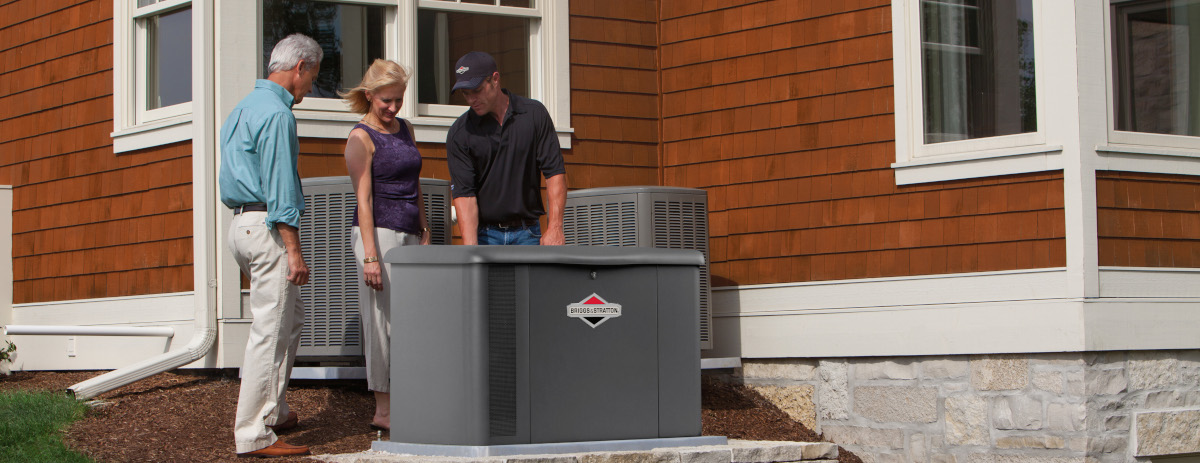
With a household generator, you’ll never go without power barring equipment failure or running out of fuel.
Before a big outage affects their lives, many people ask, “Why do I need a generator?” Only until the power goes out for more than a few hours do they consider making the purchase. With an aging power grid and a funding shortfall measured in the billions for improvement and maintenance, most people should have concerns. A few years ago, generator delivery times usually measured in days. Now a much-increased demand for generators has lengthened delivery times to weeks or months.
4 Ways to Stay Safe in a Power Outage
If you’re without power, it’s easy to name the benefits you would enjoy IF you had a household backup generator. One of the obvious benefits of a generator—you’re never without power. A standby generator starts automatically and runs until the power outage ends. You won’t come home from vacation to find your house flooded, the pipes frozen, or a refrigerator full of spoiled food.
Benefits of a Generator: No Losses
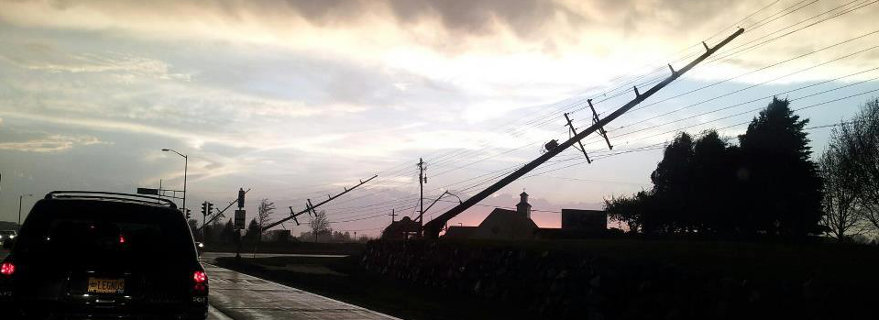
With a generator, food in the refrigerator and freezer stays cold. Without a generator, refrigerated food goes in the trash after four hours. Freezer food can last 12 to 24 hours if it remains frozen and ice crystals are present.
Tip: Put a couple of scoops of ice cream in a small container in the freezer. If the power goes out and the freezer becomes too warm, the ice cream melts, and the scoops lose their shape. Time to throw out the freezer food.
An automatic household backup generator restores power in less than a minute, usually much faster. A portable generator is not automatic, but if you’re home, it can save the day with power for your most essential appliances and services.
Other losses can occur when sump pumps and ejector pumps cannot keep the basement dry, or sewage pits empty of waste. Keeping the heat on if you have electric heat usually requires more power than a small generator can provide. This is a job for a standby generator or one of the largest portables.
How to Use a Portable Generator for Backup Power
Household Generator = Less Grid Dependence
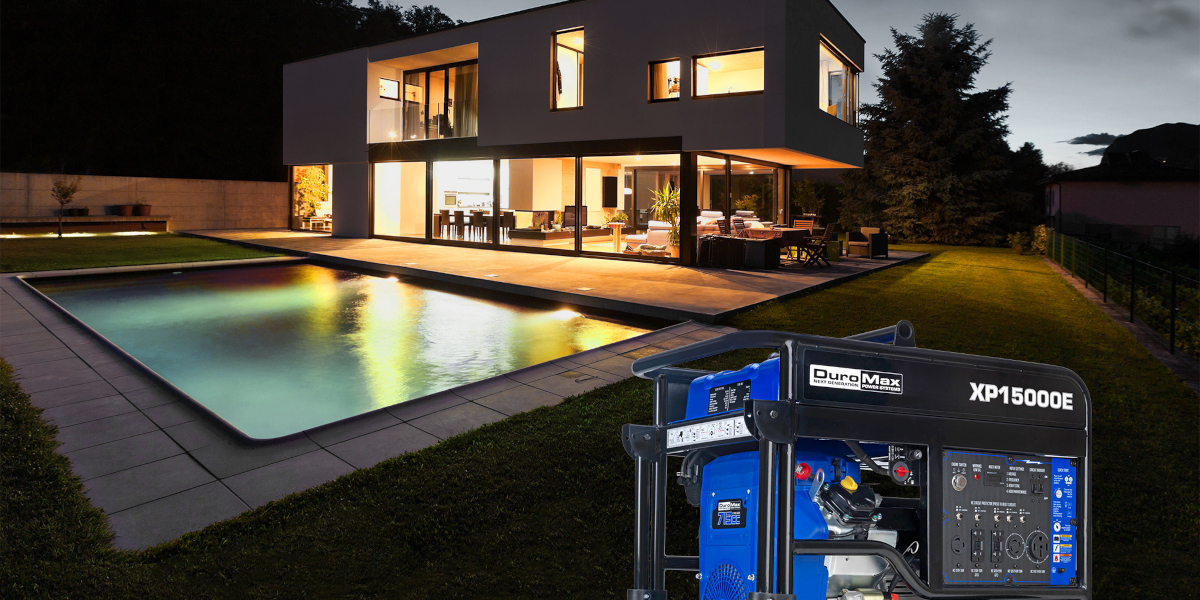
Unless you’re going off grid, which is a whole different topic, we’re all reliant on the electric grid for power. When the power goes off, we’re either in the dark or we supply our own power with a portable generator for home or an automatic standby generator.
One of the most reliable sources of energy we have in the United States is Natural Gas. Widely available in most cities and towns of any size, Natural gas flows freely without interruption. It’s the most popular fuel for heating and cooking and it does a great job powering a natural gas whole house generator.
With natural gas or propane from a properly sized backyard tank, no refueling is necessary. The generator runs for as long as required except for oil checks and maintenance. There’s no shut down and cool-down period for refueling.
But portables have their place, especially where outages are far and few between.
Portable Generator Safety Rules
Power Your Home Office Through a Blackout or Outage

In March 2020, the world changed forever when the global pandemic hit. It didn’t take long for companies and workers to switch from an “in office” model to a “work from home” model. As companies realized benefits in terms of productivity and reduced costs, many employees now make their morning commute down a hallway instead of a highway.
All is well until the lights flicker and then go out. Without power, the internet router doesn’t work and the home to office connection fails. Some options exist for laptop users while they still have battery power. One option is an uninterruptible power supply, but they only add a few minutes or, at most, an hour or two for the largest and most expensive.
The standby generator kicks on seconds after the power goes out. Lights come back on. The router takes a minute to reboot and reconnect. Displays come to life and work continues.
A good portable can do almost as well, provided you’ve taken the right steps to prepare. Install a manual transfer switch that powers critical circuits, including your office equipment, and invest in a portable inverter generator with excellent power quality and good fuel efficiency. They are also less noisy than regular portables.
How to Prepare for a Power Outage
Power Critical Home Appliances with a Generator
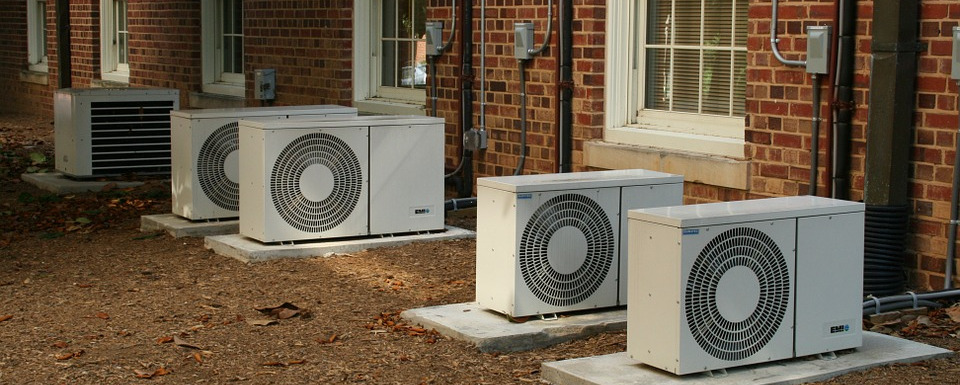
What do you consider critical? It might surprise you to learn that for some it is the air conditioner while others want to make sure the electric stove works. A well pump is essential during a long outage and a sump pump during a severe thunderstorm with torrential rain.
With the correct size whole house generator, you don’t worry because everything works. A generator can even power an electric car charger. And while the generator and automatic transfer switch manage some appliances automatically, others work all the time. Air conditioners might start in sequence rather than all at once. Maybe the electric water heater waits while you cook dinner on an electric range. A more powerful generator can power more large appliances at the same time instead of managing them for optimal power use.
Make choices like these before purchase while talking to your installer, but it is also important to understand your power requirements. Use a generator power calculator and a sizing guide to help you make choices and determine the best household generator for your home and family.
FEMA Recommends a Backup Generator for Emergency Power
https://www.norwall.com/power-expert/fema-recommends-a-backup-generator-for-emergency-preparedness/
Home Medical Devices
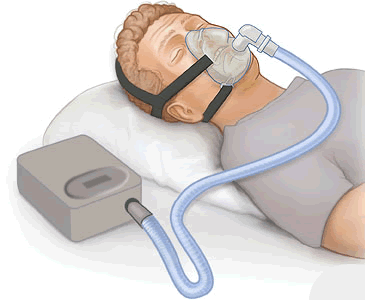 Today, more people rely on home medical equipment than ever before. Home equipment may allow someone to live at home instead of an extended care facility, like a nursing home or assisted living facility. Many Americans, young and old and in-between, rely on CPAP or Bi-PAP machines to keep them breathing while they sleep.
Today, more people rely on home medical equipment than ever before. Home equipment may allow someone to live at home instead of an extended care facility, like a nursing home or assisted living facility. Many Americans, young and old and in-between, rely on CPAP or Bi-PAP machines to keep them breathing while they sleep.
Stair lifts, nebulizers, lift chairs, oxygen concentrators, air purifiers and ionizers all require electricity that won’t work during a power outage. A power outage could trap someone with a stair lift upstairs until the power comes on, or they might not be able to get out of their chair. Other equipment like electric wheelchairs and scooters require electrical power to charge their batteries.
People who rely on home medical devices are better off with an automatic standby generator than a portable. Some power companies will provide a portable for short-term use during a planned or extended outage. This is not universal. Home Standby generators are not rated for lifesaving equipment, but they do offer a greater measure of safety and reliability during a power outage than portable generators or no generator at all.
For homebound people living alone, an automatic generator provides safety and peace of mind for themselves and for loved ones who might not be able to reach them in times of need.
Battery Backup Generator Alternatives Can Power Your Entire Household
Generator Power During Following a Natural Disaster

Natural Disasters and Severe Weather Events cause most widespread power outages. Recently, Public Safety Power Shutoffs (PSPSs,) primarily in California, affected millions of people for days at a time. PSPSs began when Pacific Gas & Electric was found at fault after their distribution grid sparked wildfires that took lives and destroyed property.
Pacific Gas & Electric Plans Widest Blackout in History
Backup power during a natural disaster or severe weather can mean the difference between staying in your home or seeking shelter in a public facility or hotel. The latter is expensive, the former a risk as the global pandemic continues. Once you leave your home, local authorities may not let you return for days.
A household backup generator that powers your whole house starts automatically in any weather, including a hurricane. Operating environment specifications include hurricane-force winds, rain, snow, ice, freezing cold and extreme heat. Those that run on natural gas won’t run out of fuel unless the utility shuts it off—a rare occurrence. Propane models can run for days or even a week or two off their storage tank.
Most portables need refueling multiple times a day. After a disaster, purchasing gasoline or BBQ size propane tanks may be difficult because of shortages and long lines. Municipalities restrict gasoline storage to twenty-five gallons or less—enough to last a day or two in portables large enough to keep your major appliances running. However, portable generators can supply power following a disaster. You probably won’t go out in the middle of a hurricane to start it or refuel, but the right size keeps your refrigerator and freezer running, a window air conditioner or furnace. The largest models can power smaller central air conditioners.
Automatic Household Generator Operation
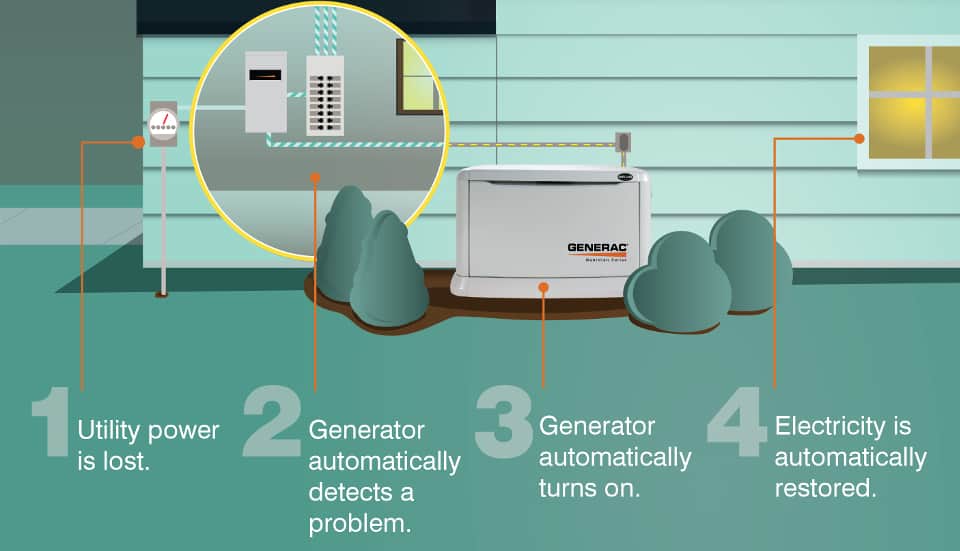
A standby generator is automatic. A permanent connection to the natural gas or propane fuel supply means it never needs manual refueling. An automatic transfer switch connects the generator to the home’s electrical system.
When utility power is present, the transfer switch supplies the home with power from the utility. The moment the generator senses a power outage, the generator engine starts and stabilizes the speed within a few seconds. When it’s ready, it signals the automatic transfer switch. The ATS disconnects the utility lines from the household electrical system, then it connects the lines from the generator. In this way, the two power sources can never meet.
Buyer Guide: Automatic Transfer Switch
This break before make connection happens seamlessly without intervention by the homeowner. The same change occurs when the utility company restores power. The transfer switch disconnects the generator lines, then connects the utility lines. The generator runs without load during a cool-down cycle before it automatically shuts down.
Because it is automatic and works without the homeowner, the whole house generator keeps the power on even when the owner is away. Pipes won’t freeze in the winter, basements that rely on sump pumps stay dry, and the food in refrigerators and freezers stays cold or frozen. Other essentials like home security systems work normally.
Remote monitoring keeps you informed of generator status. You’ll always know when the power is out, the generator runs or exercises, or when it is time for maintenance. Connect with a local service dealer and let them proactively handle the maintenance. It gets done on time and done right, and they take care of repair service when necessary.
How it Works: Components of a Standby Generator System
Portable Household Generator Backup

A portable can provide power for essentials. Most won’t keep the entire home powered, especially electric ranges and hot water heaters. But they can keep pumps running, allow the furnace to keep the house warm, and make sure the fridge and freezer stay cold.
They can handle essentials too, like drying your hair in the morning, charging the electric toothbrush, or keeping your phone charged.
Small portables less than 3000 to 4000 watts use less fuel and they cost less too, but they won’t handle many of the larger loads. Consider these essential appliances that use 1000 watts or more.
Appliance | Running Watts | Starting Watts |
| Sump Pump | 860-1000 | 2300-3000 |
| Well Pump | 1000-3200 | 2100-7000 |
| Hair Dryer | 1800-2000 | 1800-2000 |
| Microwave | 750-1500 | 750-1500 |
| Furnace Fan | 875 | 3200 |
| Refrigerator | 800-1000 | 1300-1600 |
| Freezer | 800-1000 | 1300-1600 |
*Power required varies with motor size and load.
As shown, it doesn’t take much to reach the power limit that smaller portables can supply. Don’t forget Starting Watts—the power required to start an appliance motor. When a motor starts, it takes more power to start it turning, especially under load. Pumps usually start under load. Bigger motors use more power than smaller motors.
How to Use a Portable Generator for Home Backup
Don’t let physical size fool you. The handheld hair dryer uses more power than the average refrigerator and freezer combined.
Is your well pump plugged into a wall outlet? Many are not. Same with the furnace. These appliances are hard wired to a circuit breaker.
A manual transfer switch supplies selected circuits with power from a generator. The generator plugs into an inlet box. The inlet box connects to the transfer switch. In an outage, the homeowner connects the generator to the inlet box, starts it and gives a minute to warm up, then moves the transfer switch from utility to generator. Circuits supplied by the transfer switch have power.
What Will My Portable Generator Run During an Outage
A transfer switch is the safest way to power your home with a portable generator.
Warning: Backfeeding your home by plugging the generator into an appliance outlet with a homemade cord is both dangerous and, in most cases, illegal. They are called “suicide cords” for a reason.
If you plan to use a portable generator for backup power, install a manual transfer switch to power your essential and critical circuits during an outage.
Planning a Manual Transfer Switch Installation
Standby Generator Installation DIY?
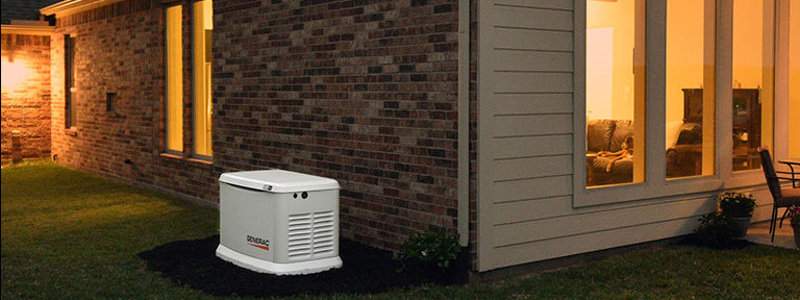
Do it yourself? Probably not unless you have both plumbing (for gas lines) and electrical knowledge beyond the basics. This isn’t adding a light switch or an outlet. The installation of a standby generator with an automatic transfer switch will require permits and inspections. The building code enforcement department will require a plan with materials and want to know who is doing the work.
And if you can’t convince the inspector that you’re qualified, they won’t issue the permit.
A permit and inspection ensure a job done right and correct operation. Your insurance company won’t claim you did the job wrong if there’s a fire or injury (or even worse, death) and deny a claim. There are so many reasons to not DIY that it makes sense to hire a professional standby generator installer. Do your homework. Ask for references. Hire someone who handles the permits and schedules inspections. They should be the one who registers your generator with the manufacturer to provide you with full functionality and a full warranty period from date of installation.
However, there are things you can do to lower the cost. Serving as your own general contractor can save you money provided you do some of the work yourself. It starts with an approved plan and building permits. Work you can do yourself includes preparing the site and moving the generator to the install location, among other things.
Installation Guide: Home Standby Generator
Other Household Backup Generator Benefits
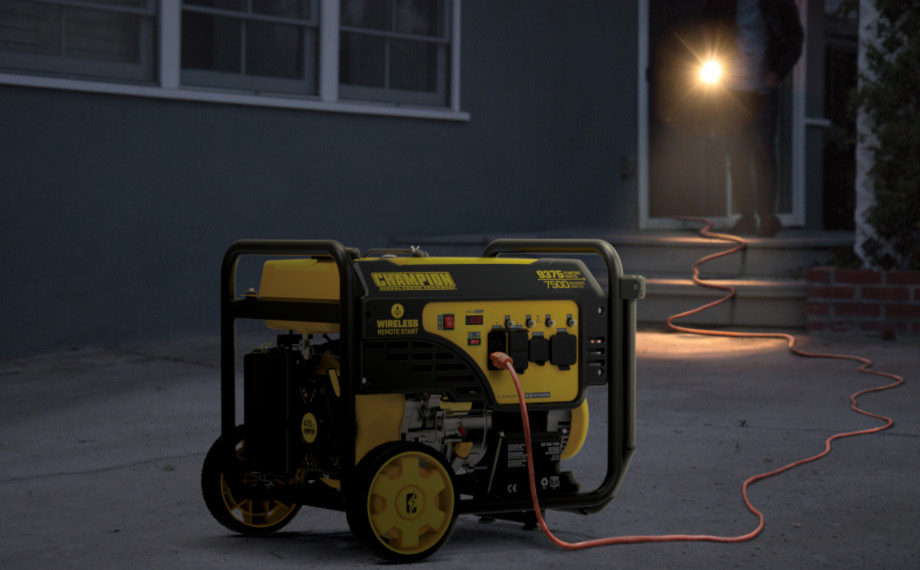
A generator, standby or portable, offers peace of mind. If the power goes out and the entire neighborhood is dark, your lights are on, the home is comfortable, and you’re not worried about basement floods or spoiled food in the refrigerator. With a standby generator, even if you’re not home, the house has power throughout an outage. Home and family are safe with all the necessities and conveniences provided by electrical power.
A standby generator or portable generator installation is an investment. A standby generator is a big purchase, and installation can add considerably more to the cost. However, it’s not just the safety and security of backup power that provides peace of mind.
Choose the Right Fuel for Your Home Generator
Homeowners that invest in a standby generator add value to their home and recoup the investment at sale by up to 150 percent, depending on the region and generator. In areas prone to power outages, it’s another feature that makes the home more attractive to buyers.
Some insurance companies offer discounts for a household generator system. An automatic generator keeps pipes from freezing and sump pumps working. Frozen pipes in winter cause a major flood and damages add up to tens of thousands of dollars.
Not to mention the loss of personal property that can’t be replaced like family heirlooms, pictures, or other items that represent priceless memories to the homeowner and family.
Top Five Home Generator Brands
Home Backup Generators

It’s easy to measure the tangible benefits of home backup generators. Harder to measure are the intangibles, like peace of mind or having the power on in the middle of a birthday party or holiday celebration.
Everyone groans when the lights suddenly go out and breathe a sigh of relief when they come back on a few seconds later. With a standby generator, the wait for power restoration never stretches into minute or hours. A few seconds after the power goes out, it comes back on.
Reasons to Choose a Natural Gas Generator
If you have a portable, you might wait a few minutes or call the power company. Not long after the outage, you’ve connected and started the generator. The circuits you selected have power, and you’re not worried about the power outage.
Isn’t it time you had the peace of mind a household generator provides?
